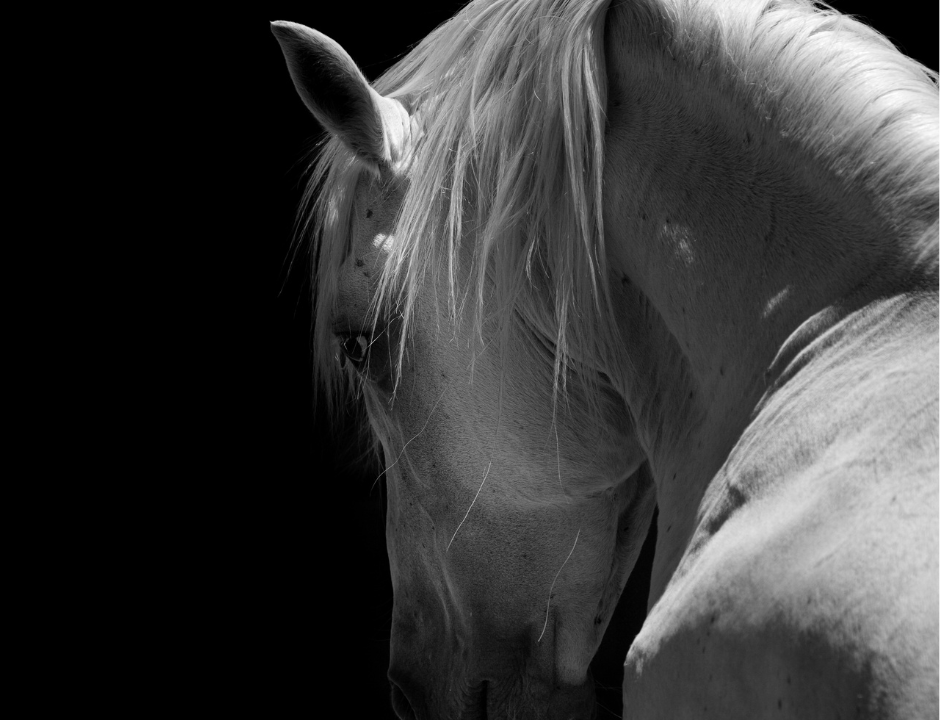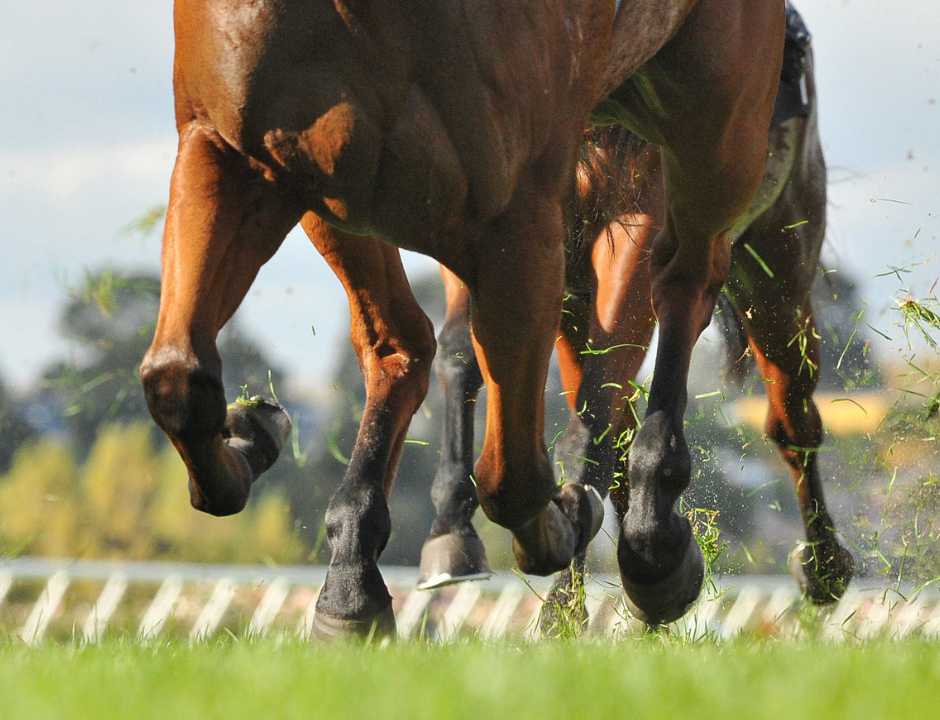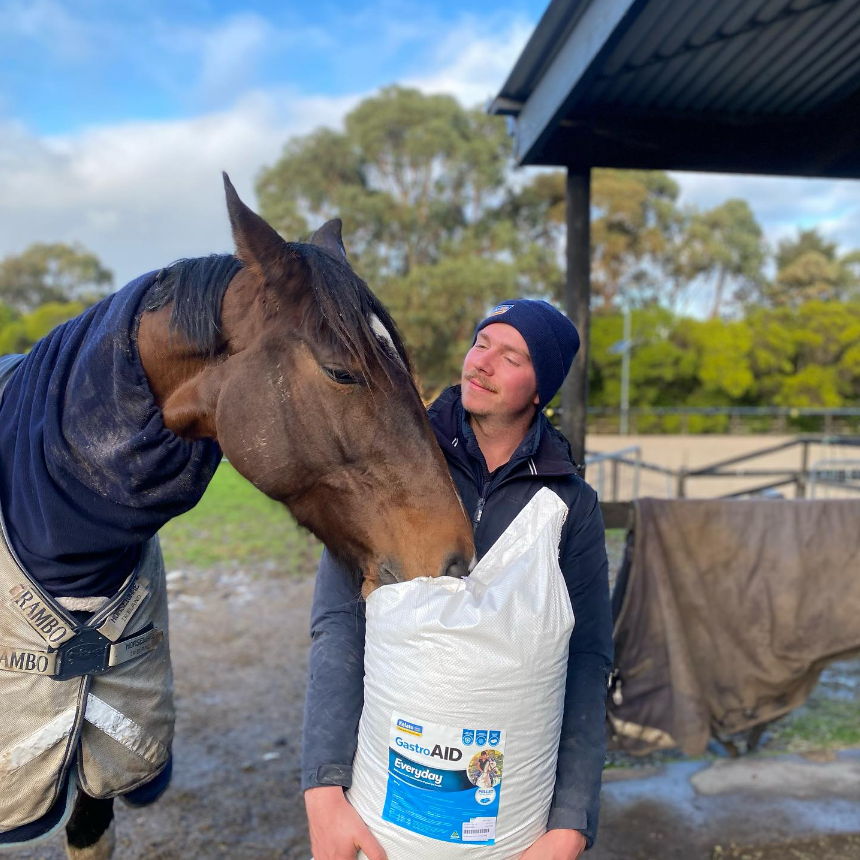Travelling long distances with performance horses can be stressful, expensive and can impact heavily on their health and wellbeing. Imagine arriving at your destination and discovering that your horse is unfit to compete!
Thankfully there are ways to minimise the negative effects of lengthy journeys, you just need to know how.
Carsten and Fiona Graetz own the Carona Park Show Team in Western Australia and compete right across Australia. They recently travelled to Sydney for the EquiFest Championships and Grand Nationals 25th Anniversary show. We took the opportunity to find out their tips on keeping their horses happy and healthy while on the road.
How many horses are you travelling with this time and what is their schedule?
We’re bringing three horses to Sydney and they’ll compete in seven classes across two different events. We leave from Serpentine, WA and it takes us four days to reach Sydney. The horses will stay at two different locations for the events and we’re away for 21 days.
Considering the effort and the cost, why do you travel so far for events and how often?
Travelling east is a mammoth task and it is expensive but they are prestigious events that we qualify for and have been extremely successful at. This is our business so having horses competing at events like the EA Nationals, Sydney and Canberra Royal, and Grand Nationals is important.
What are the negative effects of long journeys that you’re trying to avoid with your horses?
Travel affects horses in different ways and it can depend on the nature of the horse. One of our horses is a seasoned traveller who’s clocked up more 30 thousand kilometres in five years and he seems to keep the others calm on trips. I haven’t found that mine go off their feed completely but they certainly eat less. There’s a lot to stress them out, extra early mornings, strange places, and long days standing up in the float.
How do you prepare the horses for a long trip?
It takes definite management, the journey across the Nullabor is a hard one and we’ve done it eight times now. All my horses have been trained to be tolerant of being locked up in small spaces for periods of time.
Before each trip I prepare the horses by increasing their hay intake at least two weeks prior to leaving while decreasing the protein and starch. This is to avoid any issues relating to stress or laminitis. We also increase the use of Speedibeet or Maxisoy to help with hydration and I usually do some trotting out on the roads to harden their legs.
How do you break up the trip for the horses?
We stop every five hours to give the horses the chance to put their heads down to have a drink. We try to find somewhere that they can graze for a little while and walk to stretch their muscles. I have a drinker on board so they have access to water while travelling but while some people provide hay, we don’t do this to avoid the risk of choke.
Everyone has a job during the stops – walking horses, filling water buckets, cleaning the float, fuel fill up and food order. We’re a well-oiled machine!
Do you use any particular products to help the horses cope and recover?
Definitely! We give them MuscleGUARD in the morning as we put them on the truck to prevent fatigue and help them recover after standing for hours. They’re also given GastroAID in their feed at night when we stop to keep their digestive systems functioning properly and the usual dose of KelatoLYTE as well to ensure they stay hydrated.
How do you help them settle in once the journey is over?
I keep them on the same products but increase the dose of GastroAID. Their feeds are also increased to help them gain any weight they’ve lost during the trip.
How do you know that they’re coping with the stress and are well?
Body language and eating habits. If they’re all eating and drinking it’s a pretty good indication they’re happy.
What lessons have you learned about travelling with horses?
You can’t just go out and do it. Horses need to understand and be tolerant of being locked up in a small space for a long period of time. It helps if they have a buddy to keep them calm and that goes for people too, travel with others if possible, it helps to have group support.
It’s imperative you make sure your horses are drinking normally, but don’t over-hydrate as that can also cause problems. Make sure you plan your stops and have them regularly to give the horses a break. My horses don’t seem to have issues with water that tastes different, but additives such as molasses or apple cider vinegar are good for that problem, you just need to ensure they’re used to it beforehand.
There’s also obvious things like your float or truck being well-ventilated, your horses being healthy to begin with and making sure they get a chance to rest and recover when you arrive. You’ll need that too, long trips are tough!
Want to find out more? Head to the MuscleGUARD, GastroAID or KelatoLYTE pages, get in touch on 1800 Kelato or email technical@kelato.com.au.




